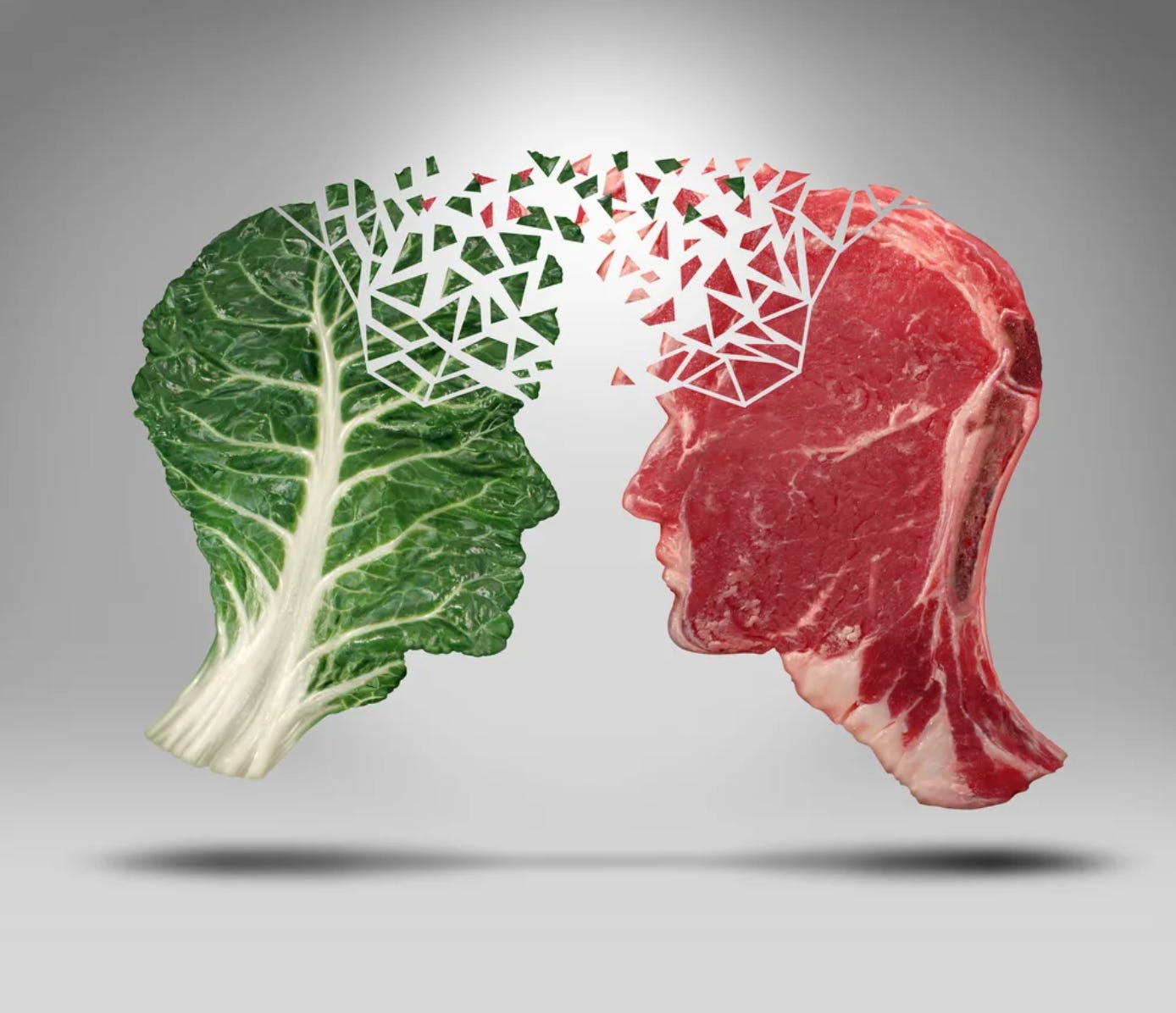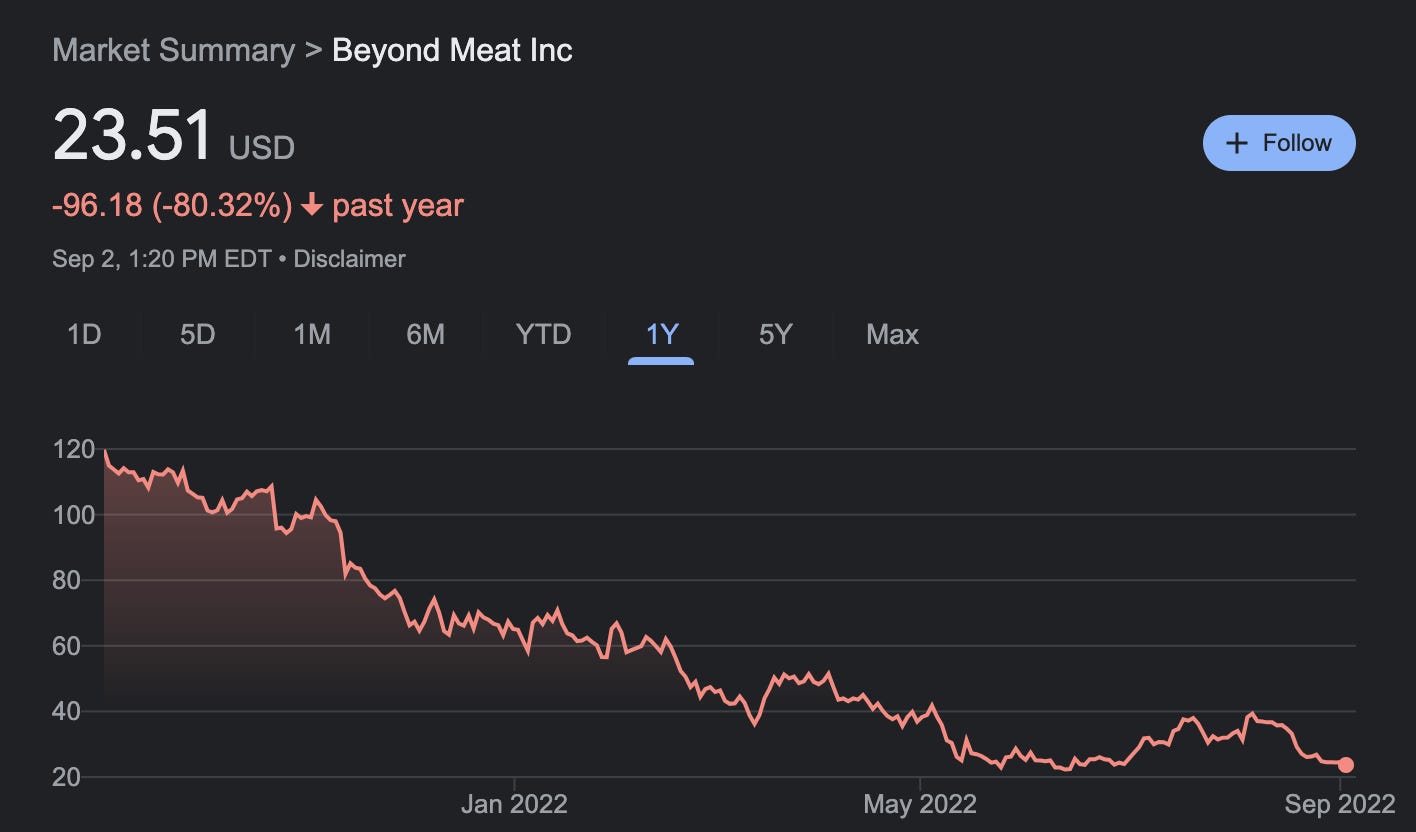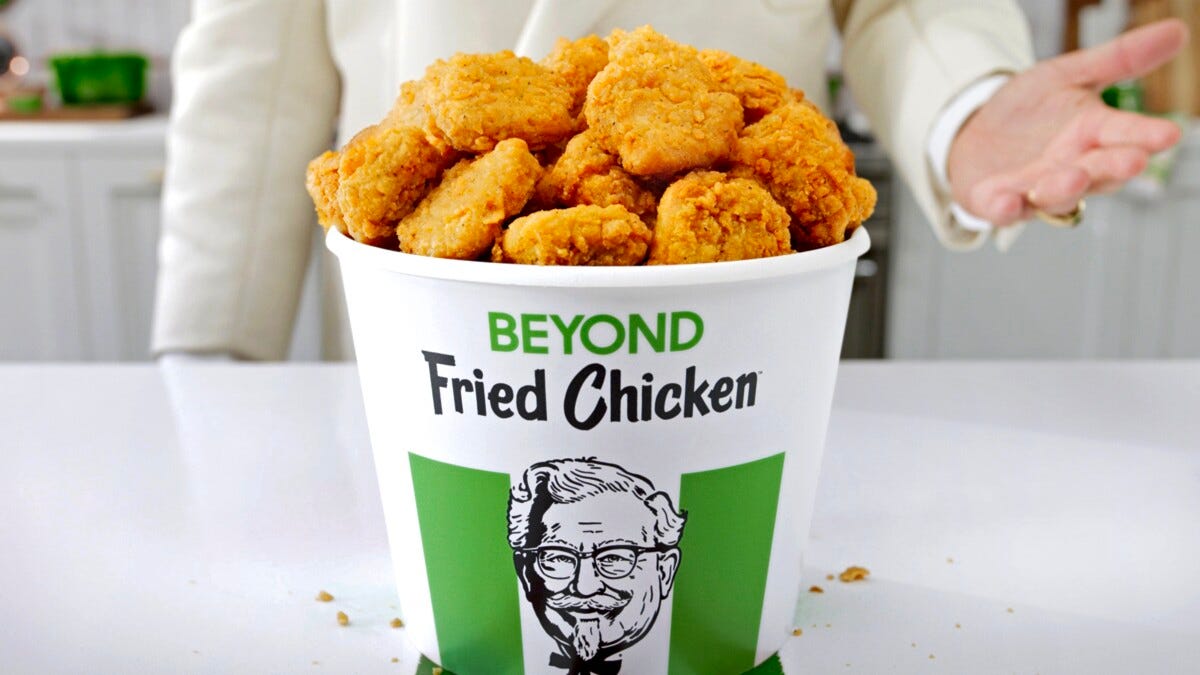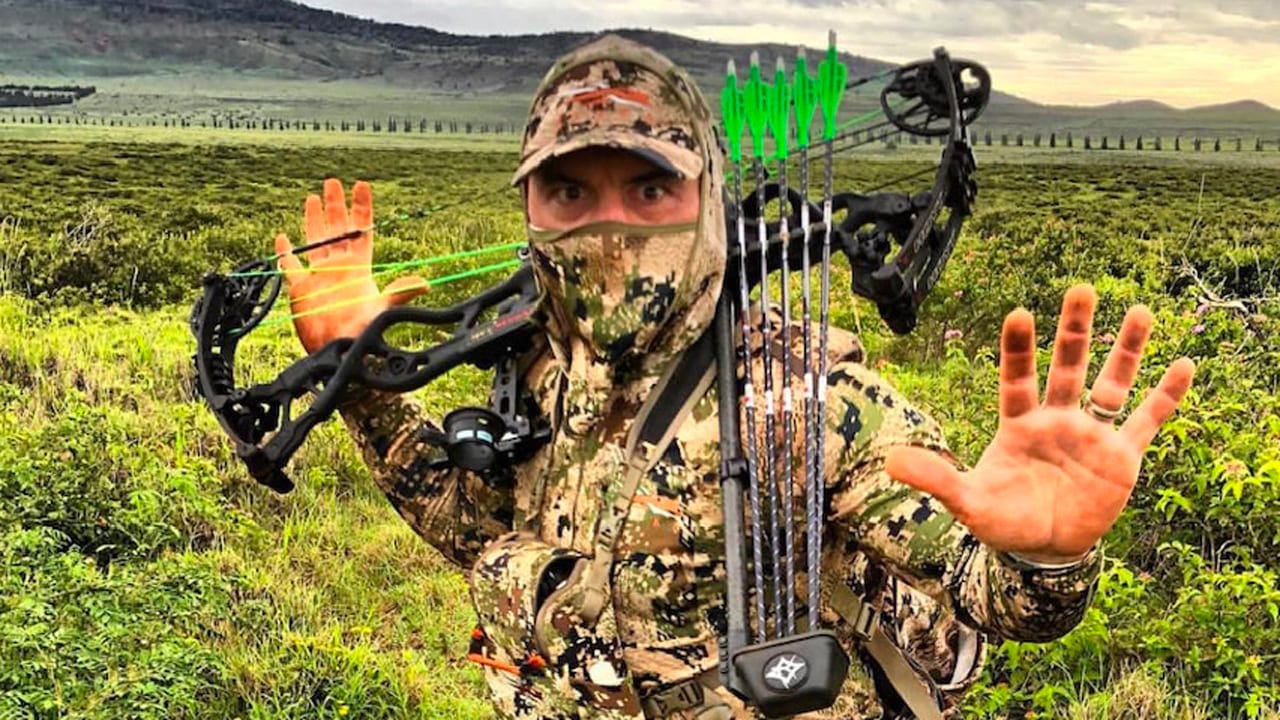|
Plant-Based Food is the Future
Alternative meats/milks are crashing. But a deeper look at systemic factors shows that the future of food is plant-based.
| ||||||||||||
There’s a market crash that not many people have been talking about: plant-based foods. The share price of two of the most prominent plant-based foods, Oatly and Beyond, have shed a shocking 82% and 80% of their value in the last year. Both stocks are also at a lower price than their initial public offering – a mark of shame that often predicts a company’s death.
What’s true of these two stocks, moreover, seems to reflect broader patterns in food consumption: Americans are eating more meat. The last 10 years have seen a significant increase in per person meat consumption, with chicken (“broiler”) consumption seeing the most dramatic increase. The global picture is even more sobering; India, where meat consumption has always been very low, has seen a nearly 40% increase in poultry consumption in the last 10 years.
Ten years ago, when the world was celebrating the rise of plant-based foods, and supposedly declining meat consumption, I was a skeptic. I wrote at the time, “The demand for meat is a complicated variable that can't be linked to any one factor. And there is significant year-to-year variation that has nothing to do with our work.” Now, as markets are crashing, and pessimism is growing, I am here to offer the opposite message.
I was wrong, and the future of plant-based foods is bright. A look at deeper, and more systemic, factors – the economic and environmental fundamentals; institutional openness to food innovation; and public desire for transparency and authenticity – explains why.
Factor 1: The underlying economic and environmental indicators are driving us even more aggressively towards plant-based foods.
One of the primary reasons I was a skeptic of plant-based foods, back in 2012, was that much of the industry did not seem to have any evidence of what economists call “economies of scale,” i.e., cost reductions that occur when a product is produced in large numbers. A lab grown meat burger cost roughly $330,000 per patty, and I wrote at the time that there was relatively little evidence that lab grown meat, or other new plant-based alternatives, could achieve the exponential cost reductions necessary to compete with animal-based meats.
That has now changed. I am still deeply skeptical of lab-grown meat, but costs have gone from $330,000 per patty to perhaps $10. While that is still far too high to compete with animal-based meat, the bigger story is not lab-grown but plant-based meats. I was at Costco yesterday, and the discounted cost of a Beyond Burger was about $1 per patty, and about $4 per pound. That is lower than the current nationwide cost for a pound of ground beef, which is $4.89 per pound.
The reason for this is in part the thermodynamic fundamentals. David Pimental, a leading agricultural scientist at Cornell, found that the animal-based foods generally used at least 10 times as many calories of plant-based energy, to get 1 calorie of animal-based energy. Indeed, this is why many scientists, including my upcoming podcast guest Dr. Michael Martin at UCSF, have chosen plant-based foods: to combat global hunger by ensuring we don’t waste food in animal agriculture.
The damage to the environment from animal-based foods, of course, is even more dangerous and irreversible than the energy waste. And there have been a large number of compelling and recent studies showing that the damage of animal-based foods is worse than we believed. A study published in Science Magazine in 2018 – the most prestigious peer-reviewed journal in the sciences – showed that “[negative climate impacts] of the lowest-impact animal products typically exceed those of vegetable substitutes, providing new evidence for the importance of dietary change.” One of the co-authors of the study stated that eating plant based was “the single biggest way” to reduce environmental impacts.
Another Science study published in 2020 found that, “even if fossil fuel emissions were eliminated immediately, emissions from the global food system alone would make it impossible [emphasis added] to limit warming to 1.5°C and difficult even to realize the 2°C target.” Let’s repeat that word. Impossible.
Finally, in just the past few weeks, a study published in the equally prestigious Proceedings of the National Academy of Sciences found that “many meat alternatives had a fifth to less than a tenth of the environmental impact of meat-based equivalents.”
I have stated and written previously that vegan advocates should hesitate to exaggerate the impacts of animal agriculture on the environment. However, the data is out, and the environmental arguments are much stronger than they were 10 years ago. Importantly, as environmental impacts are becoming more immediately dangerous – for example, the wildfires and droughts in California – these environmental impacts are driving systemic change. They explain why the state of California, for example, is imposing an electric car mandate by 2035. If, as leading scientists have found, it is “impossible to limit warming” – which causes about half of the wildfire damage in California – without a similar transition to plant-based meat, then a plant-based meat mandate may be in the future as well.
Factor 2: Institutions are open to plant-based foods.
When I started as a vegan in 1998, there were literally zero vegan meats (or, importantly for me, cookies and ice creams) on the market. I patched together meals composed of canned lima beans and packaged tofu from Chinatown and lost nearly 40 pounds of weight, to the point that my grandmother thought I needed to be institutionalized. The world, needless to say, is completely different today, as plant based burgers are being offered by the largest fast food chains across the nation.
Institutional openness is crucial because institutions drive human progress and change. When supportive, institutions can supercharge initiatives, such as solar power or the development of high-speed internet. When opposed, institutions can grind progress to a halt, e.g., the carbon tax or housing reform. The reason is quite simple: institutions – meaning not just government and business, but also smaller civic organizations – are the primary vehicles through which human beings cooperate. And cooperation is crucial to any successful effort at change.
Among the examples of institutional openness from the last few years: the entire city of Berkeley passing a resolution to transition city spending to plant-based foods; the state of California introducing (though failing to pass) a moratorium on new factory farm construction; the introduction of plant-based burgers at virtually all the major fast food chains; and, perhaps most importantly, the openness of our most important media and cultural institutions, such as The New York Times, to a plant-based future.
We should not overstate the importance of big and mainstream institutions in creating change. As the sociologist Damon Centola has pointed out, change almost always happens at the periphery, and then spreads to mainstream institutions. There’s a reason it was Tesla, and not GM, that revolutionized electric cars, and that it was Amazon, and not Borders, that changed the way we bought books. Mainstream institutions are constrained by the fact that they serve entrenched interests. The same is true of cultural and moral changes. The LGBT folks who rioted at Stonewall were not bankers from the Ivy League, and that is precisely why they had the freedom to fight back. They didn’t have as much to lose.
But while change doesn’t start with mainstream institutions, it’s important that those institutions remain receptive to the change that will start at the periphery. Ten years ago, I saw little evidence that this was the case, in plant based foods. Today, that evidence is everywhere - even at KFC.
Factor 3: Plant-based foods fill the public’s need for transparency and authenticity.
Joe Rogan, the renowned hunter and carnivore who regularly mocks vegans on his popular podcast, is one the biggest data points in favor of a plant-based future. You see, while Rogan reserves some of his greatest ire for guests who advocate for plant-based foods – check out his podcast with John Mackey to see some fireworks – he also proves two things about the future of not just food, but culture and media.
The first is the need for authenticity. In a world of distrust, people are looking for something that feels real. I did not understand why Rogan’s podcast has become the most popular podcast in the world, until listening to a few of his podcasts about veganism. I expected to hear the usual tired talking points against plant-based foods – “Lions, tho”; “What about protein?”; etc. What I heard was something that was more conflicted, complex, and real: Rogan didn’t really seem that sure about his convictions.
On the one hand, Rogan absolutely does defend hunting and eating animals. He believes it is the most natural and healthy diet, and that some amount of violence is simply part of the natural world. On the other hand, he speaks against factory farming like, well, an animal rights advocate. He condemns it in unequivocal moral terms, and has even stated that he nearly became a vegan after first learning about what actually happens to animals in the production of meat.
This authenticity is key to his success. He’s not afraid to contradict himself, to explore the flaws in his own position, and above all, to simply say what he actually thinks. And what is true of Rogan is true of our entire culture. We have become tired of politicians and their talking points; TV anchors and their teleprompters; corporations and their marketing slogans. We want something real.
And “real” is not what animal-based foods can offer. The entire industry is built up on artifice, and as that artifice crumbles, people will move towards something that is not built on a house of mirrors.
That brings me to the second reason Joe Rogan proves the future of food is plant-based: when people actually see the reality of how animals are killed for food, they want no part in it. There are a small number – like Rogan or Mark Zuckerberg, who famously promised a few years ago that he would only eat animals that he personally killed – who will respond to the reality of animal farming by switching to smaller scale methods of animal slaughter. But that is impossible for 8 billion people. To feed the human race, in a world where people can see what their food actually is, we need plant-based food.
This point is not purely about scale, however. Hunting and regenerative agriculture will die off even if they could be replicated at scale. Because, when people see killing, and are given a moment to reflect, they want it to stop.
An example from my recent North Carolina trial, where I was charged for rescuing a baby goat sick with pneumonia, is relevant here. There was a juror in that case, a gruff white man, who reported that he was deeply conservative and a gun owner. When he disclosed he had used his guns for hunting, the case seemed closed. We needed to get him off the jury.
But then something unexpected happened. When I asked him if he was still hunting, he told a story that brought many in the courtroom to tears.
“About ten years ago, I was lining up my shot, and I realized the deer I was about to shoot was a baby. So I stopped.”
“Tell me more about that,” I said.
“Well, I saw her dancing with her mom, And the fawn seemed so peaceful and beautiful with her family. I had a dog who had died a few years back. I spent every dime trying to save her, even though I didn’t have much. When my dog was on her deathbed, I couldn’t afford to bring her to the vet. So I had to shoot her myself. It nearly destroyed me.”
“I thought about my dog when I saw that baby deer. And I just couldn’t shoot. I decided, I liked her alive more than I liked her dead.”
I felt my eyes starting to water. I had just lost my own baby girl, Lisa, a few months prior. The loss of a loved one is the greatest pain any of us will ever feel. And this man, hunter and gun-owner, felt it as deeply as I did – and understood this baby deer, and her mother, would feel it, too.
He never killed an animal again.
What this shows is that when we are truly connected to our food system, we want the killing to stop. All of us – including Joe Rogan and this juror – like animals alive more than we like them dead. The problem is that we are disconnected from what actually happens, by misinformation and corporate cover-ups. Even more fundamentally, we are disconnected from a vision of a more peaceful and beautiful world, one where no animal is harmed in the production of food.
The good news is that people are yearning for this authenticity and transparency and connection. And once established, it cannot be broken. It will fuel a transformation in not just the way we eat, but the way we interact with the entirety of the non-human world.
In short, our desire to connect, in a world suffering from loneliness and despair, is the most important reason that the future of food is plant-based. Every human feels a connection with animals. And we cannot connect with those we kill.
–
This week, you, the readers, chose this subject for the blog. But you also chose a weekly act of kindness, that we’ll take together, and ideally in small groups in your local community, aligned with this blog’s topic. Your challenge is this: if you believe that the future of food is plant-based, invite a non-vegetarian friend to join you in a plant-based meal. There’s no need to judge, or argue, or shame. Just invite. And then acknowledge and show gratitude for your friend for joining you and doing something good, not just for you (and for their own health, as my guest Dr. Mike Martin will explain in the next podcast), but for the world.
Then write to us here, to tell me about how it went. We’ll choose some of the stories to discuss on the podcast, and in this blog. We’re calling it the Weekly Act of Kindness, for now, but we’re open to other framings and ideas. And, as I previously wrote, this will continue even if I am incarcerated. Indeed, it will become even more important for me, that this project continues, if in one month’s time I am sitting in a Utah prison or jail.
Some other updates
Our usual Friday Night Hangout is at 7 pm PT tonight, and we’ll be talking a bit about the ideas in this blog – and how to persuasively invite your friends to join you in plant-based meals. There’s a WhatsApp chat for Zoom participation if you can’t come in person.
Here’s the survey for the week, so we can decide on next week’s discussion – and the Weekly Act of Kindness. Also, newly, we are giving you a chance to suggest things you’d like to discuss or implement into your lives, that focus around TSI’s values of building more kindness, trust, and connection into the world.
I’ll be at the Salt Lake City VegFest next Saturday, September 10, both to discuss how our Utah trial affects everyone, and to debate a pig farmer, Trent Loos, on the ethics of animal agriculture and animal rescue. There will be an “Ask an Animal Cruelty Investigator” session in the auditorium at 2 pm, then the debate with Trent will begin at 3 pm. There’ll be chances for us to hang out afterwards, too. I’d love to connect if you’re there. Please introduce yourself if we haven’t met before!
Animal rights activists Amy Soranno and Nick Schafer face sentencing, in relation to their peaceful sit-in at a pig farm in Canada. Disturbingly, her statement at the sentencing hearing was cut off mid statement. You can read more about it here. Consider making a donation, or offering a statement of support on social media or beyond. Here is my statement, that I sent to the judge and court, if you want an idea of what you might write.
Finally, if you don’t believe the thesis of this blog, listen to Star Trek. The Federation is never wrong.
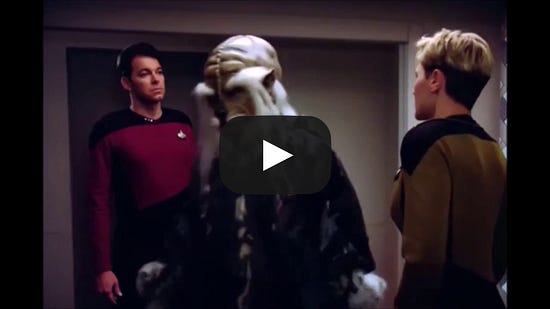
If you liked this post from The Simple Heart, why not share it?
